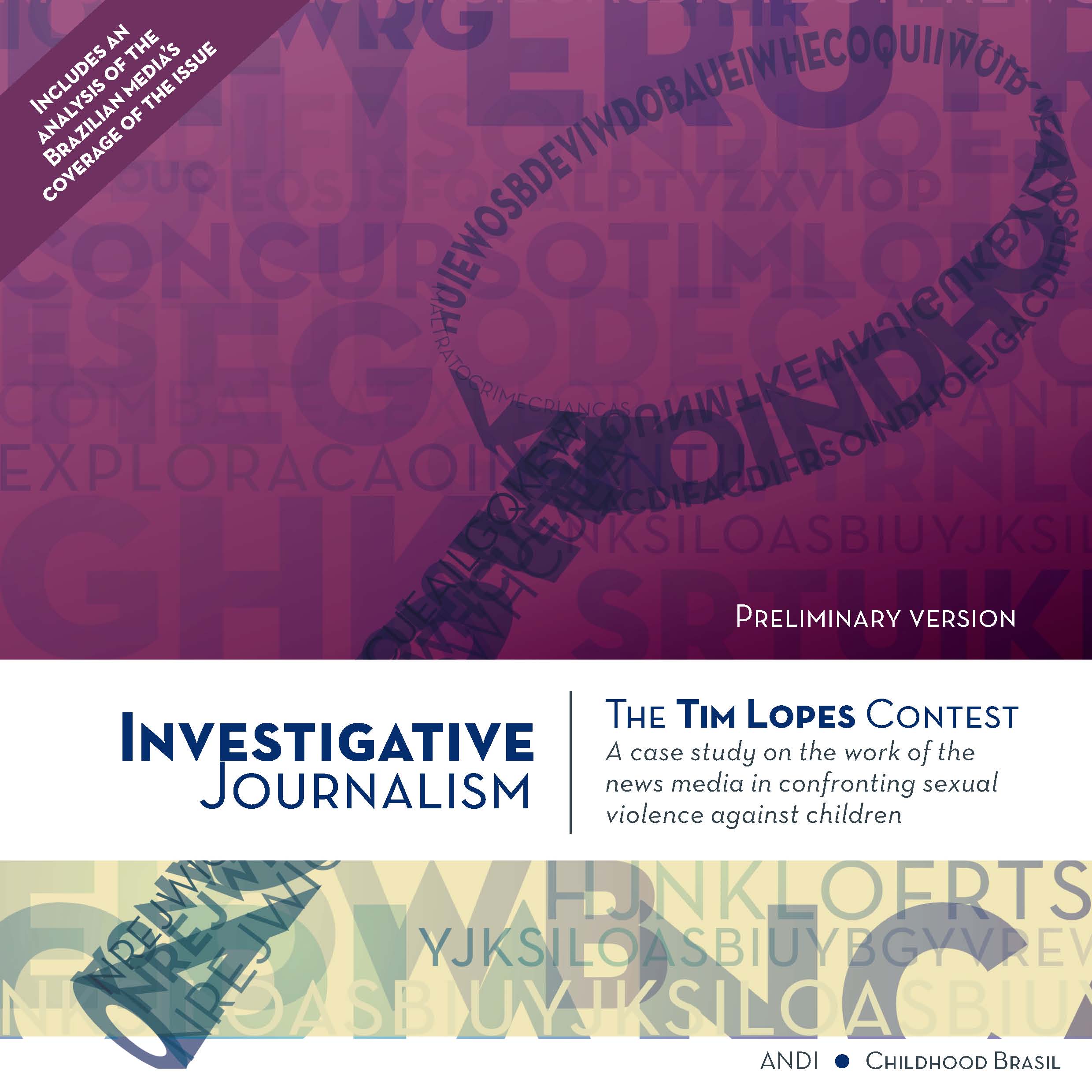
Investigative Journalism
(2008)
Commercial sexual exploitation and sexual abuse of children, regarded as crimes against humanity, are forms of violence that do not distinguish among social classes nor do they respect territorial or cultural boundaries. Confronting these crimes is a challenging task, for they are shielded by the complicity and collusion of many people, or hidden behind a veil of family shame. The rise of the Internet over the past two decades has opened new, and ever more daunting, pathways for these activities, transforming what once were acts perpetrated by individuals or small local groups into a global organized criminal enterprise.
Throughout the world, concerted mobilization efforts have been undertaken to raise awareness of these practices. It is a task that requires the active participation of countless social actors and a network of organizations with shared responsibility. Among these actors, the news media exercises a strategic role: first, by helping to lay out the moral, psychological, and socioeconomic complexities of the issue; second, by contributing decisively to ensuring the phenomenon is a priority of the public agenda. Moreover, journalism has the obligation to demand that the various related actors discharge their respective roles in an effective manner.
This context, and the effort to promote the news media’s mobilization and qualification, has served as the basis for the nearly decade-old alliance between the Brazilian News Agency for Children’s Rights (Agência de Notícias dos Direitos da Infância – ANDI), a Brazilian NGO operated by professional journalists, and Childhood Brasil, founded by Queen Silvia of Sweden, which to date has benefited over 700,000 Brazilians throughout the country.
The case study analyzes the evolution and outcomes of one of the alliance’s central initiatives – the Tim Lopes Contest in Investigative Journalism – regarded by the institutions involved in confronting sexual violence and news professionals alike as a highly innovative approach capable of providing support to editorial treatment that extends beyond the reporting of immediate facts.
Setting out the quantitative and qualitative advances spurred by the Contest in regard to the coverage devoted to the issue, as well as the profound experiences of the award-winning journalists, is, in our view, not only a way to celebrate outcomes and/or recognize the work of Brazilian news organizations but a duty of any entity – including the organizations we represent – that acts in the public interest.


